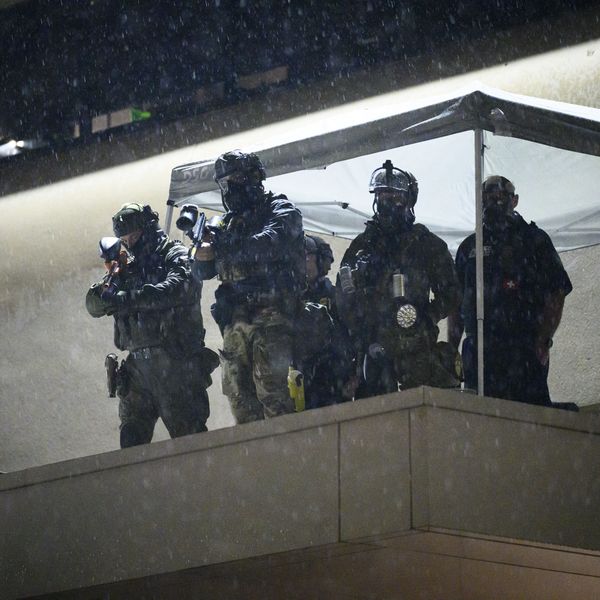One day after fast-food workers and their supporters called for a nationwide strike to demand higher wages and the right to form a union, McDonald's announced Wednesday that it will raise pay for about 90,000 of its U.S. employees--only those who work at the 1,500 locations owned by the corporation--as of July 1, 2015.
To be sure, the decision is "fresh evidence of the rising wage pressure in the American labor market," as the Wall Street Journal, which broke the news, put it.
"Because we joined together and stood up, McDonald's was forced to raise pay. Still, this is too little to make a real difference, and covers only a fraction of workers. It's a weak move for a company that made $5.6 billion in profits last year."
--Kwanza Brooks, McDonald's worker
But workers and labor activists say the move amounts to little more than a publicity stunt, noting that the vast majority of McDonald's employees will not see any raise, but will continue to earn poverty wages.
The wage hike covers just 10 percent of 14,350 McDonald's stores nationwide. The rest, which employ about 750,000 people, are owned by franchisees, who the company claims "operate their individual businesses and make their own decisions on pay and benefits for their employees."
Which means, according to the Fight for $15 campaign--which is organizing the 200-city walkout for April 15--that "[n]early everyone who works at McDonald's will still get paid less than $10 an hour--not enough to pay the bills. And many will still be making far less."
Backed by the Service Employees International Union (SEIU), the Fight for $15 movement has grown steadily since its inception in 2012.
Following Wednesday's announcement, Fight for $15 noted: "In many places, McDonald's workers earn the federal minimum of $7.25, which means even those who will see an increase as a result of Wednesday's publicity stunt will still be stuck trying to support families on $8.25 an hour."
"Because we joined together and stood up, McDonald's was forced to raise pay. Still, this is too little to make a real difference, and covers only a fraction of workers. It's a weak move for a company that made $5.6 billion in profits last year," said Kwanza Brooks, a McDonald's employee from Charlotte, North Carolina, in a statement. Brooks, who makes $7.25 an hour, declared: "We're going to keep fighting until we win $15 and union rights for all fast-food workers and our families."
McDonald's workers planned to protest the wage-hike announcement at stores in two dozen cities on Thursday. "Where's our raise?" they asked on social media.
Writing in the LA Times, Michael Hiltzik said "the overall package highlights that franchising is just one of the ways that big American companies have devised to shed full responsibility for the people who work for them."
"The fact that a $1.00 raise for 90,000 workers is headline news is evidence of how low the bar has been set."
--Ross Eisenbrey, Economic Policy Institute
Until McDonald's "acknowledges that its effective control over its franchisees extends to their employees' pay, and then when it gets those workers a raise," its announcement is underwhelming, Hiltzik continued.
"The fact that a $1.00 raise for 90,000 workers is headline news is evidence of how low the bar has been set," echoed Economic Policy Institute vice president Ross Eisenbrey. "If McDonald's truly cares about its workforce, it should encourage its franchises to raise wages, or even require higher wages in its franchise agreements."
Wednesday's announcement is proof that movements can make a difference, SEIU International President Mary Kay Henry said in a statement. But, she added, much remains to be done.
"McDonald's was forced to pay up, but it's not nearly enough," she said. "The overwhelming majority of McDonald's workers will still be paid wages so low that they can't afford basics like rent and groceries."

